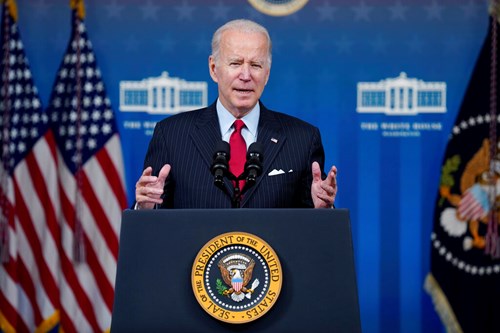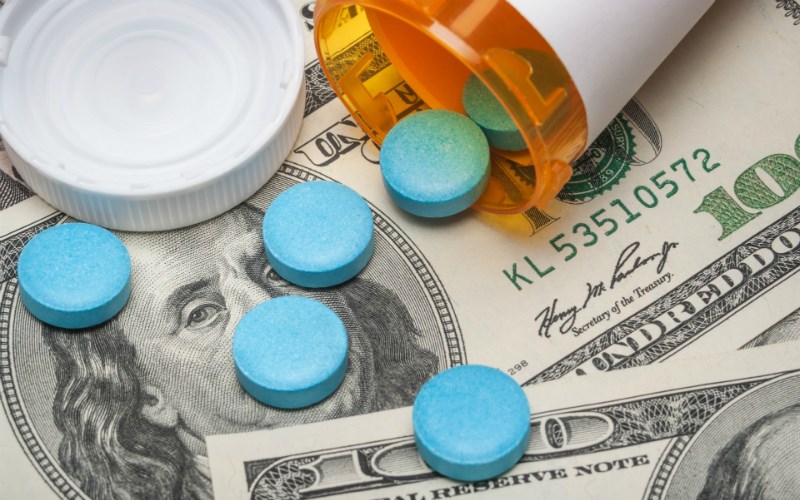The investments are part of the Greenhouse Gas Reduction Fund, a $27 billion program that is part of President Joe Biden’s Inflation Reduction Act.
House Republicans two weeks ago passed H.R.1023, which would repeal the fund, a move Biden says he’ll veto if it reaches his desk.
Rep. Gary Palmer (R-Alabama), the bill’s sponsor, says the Greenhouse Gas Reduction Fund does nothing but pay for Biden’s pet climate projects which have no real environmental impact.
“This is nothing more than a slush fund that does nothing to aid the environment. Instead, it funds special-interest groups, climate activists, and political allies that make no impact on the climate,” said Palmer, a member of the House Energy and Commerce Committee.
“This bill," Palmer said of his own legislation, "eliminates $27 billion of waste and shifts the focus to where it should be, affordable and reliable American energy.”

The administration touts its energy policy amid rising gas prices, but the real damage done by the Inflation Reduction Act is in its approach to prescription drugs, Rep. Buddy Carter (R-Georgia) said on Washington Watch Wednesday.
“What it’s doing is killing cures,” Carter told show host Jody Hice.
A pharmacist before entering politics in the Georgia legislature, and then the House, Carter says he’s seen the effect of prescription drug prices firsthand. Biden’s effort to reign them in, Carter warned, will stifle research and development.
The law requires drug manufacturers to pay rebates for drugs in Medicare Part D whose price increases exceed inflation for a 12-month period. There’s a similar provision for Part B drugs. The law also requires the federal government to negotiate drug prices on certain high-spending prescription drugs for Medicare beneficiaries, according to the Department of Health and Human Services.
“America is the greatest innovator in the world. We have had more innovation in America with drugs than any other country. I saw nothing short of cures and nothing short of miracles through research and development,” Carter said.
Biden policies mean less research and development
Carter cited a study by University of Chicago economist Tomas Philipson that found that the administration’s efforts at price-setting will mean about $18.1 billion less in annual spending on cancer research and development.
The decrease in research will result in 342 fewer cures over the next two decades, the study shows.
 “Now, what's that going to be the cure for? Is it going to be the cure for Alzheimer's? Is it going to be the cure for ALS, for cancer? We don't know,” Carter said. “Already drug companies have stopped research and development in drugs that were in the pipeline because of this piece of legislation.”
“Now, what's that going to be the cure for? Is it going to be the cure for Alzheimer's? Is it going to be the cure for ALS, for cancer? We don't know,” Carter said. “Already drug companies have stopped research and development in drugs that were in the pipeline because of this piece of legislation.”
As a retail pharmacist for more than 40 years, Carter said he at times would tell senior citizens the cost of their drugs then watch them struggle to decide whether to buy drugs or groceries.
“I was the one who had to go to the counter and tell the mother how much her child's antibiotic was going to be and watch her in tears as she tried to figure out how she was going to pay for that antibiotic,” he recalled.
Those experiences led him to advocate for lower drug prices -- but not at the expense of new life-saving capabilities.
“We've made progress, but we haven't made enough progress. The drug companies need to do a better job with their pricing, there’s no question about that. I'm not going to take up for them. They need to do a better job, but that's not where the problem is," Carter stated. "The problem is in the vertical integration that exists where you've got the insurance company that owns the pharmacy benefit manager that owns the group purchasing organization that owns the pharmacy that owns the doctor."
PBMs are a good place to star with reform
The layer that needs reform – or removal – is the pharmacy benefit manager, or PBM.

The “PBM” is a third-party company that manages prescription drug benefits on behalf of health insurers, Medicare Part D drug plans, large employers and other payers.
Carter said one of his first acts in Washington was to ask the Federal Trade Commission to look into PBMs. An FTC study concluded PBMs are “no longer relevant.”
“That vertical integration results in higher drug prices and higher health care costs. And that's something we need to bust up, but this administration, they don’t get it at all,” Carter said.







